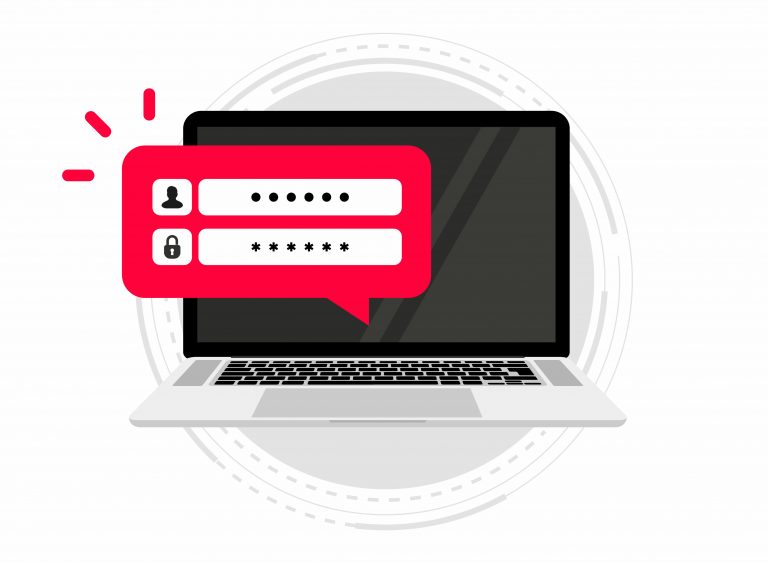Securing Your Health Data: Privacy Measures in Telemedicine
January 25, 2024Telemedicine has become an increasingly popular option for accessing healthcare services, allowing patients to consult with healthcare providers remotely. What…

How can you remove personal information from the internet? Start by locating all the “harmful” or unwanted sites and contact them using a WHOIS tool. If your response goes unanswered you can submit a support ticket to Google for review. Make sure to delete all the content you control initially (social media, blog websites, etc).
In many ways, the web has been sensible for the planet. However, one downside is the overexposure of private data. We are here to help you fight back and remove unwanted personal information online.
Unfortunately, removing personal info from the web isn’t as fast as removing your Facebook profile.
It requires time, effort and patience.
Follow these steps to remove your personal information from the internet in 2019. Start your new year out with a clean slate. Let us teach you how.
When you begin working towards removing your personal information on the internet where do you start?
First, we recommend that you head over to a search engine such as Google, Bing, and/or Yahoo and search for yourself. Use various keyword phrases so you can get a good idea of what type of information is online about you. For a more advanced search, add the state you live in after your name, as this may prompt different results within the SERP.
Create a spreadsheet using Google Sheets, copy and paste all the websites you see your personal information on that you would like to remove.
When it comes to removing your information on the internet start with the content you control.
This means social media sites such as Facebook, Twitter, Instagram, Reddit, and countless other platforms. Delete any online accounts that display personal information about yourself to be one step close to removing all your information from the internet for good!
Social media platforms tend to appear on the first several pages of Google so by deleting them you are essentially restructuring the way Google search results look for you.
Including information such as your full name, phone number, email address and links to other social accounts that may give cybercriminals a gateway to retrieving your personal information.
The average internet user has many online accounts. The foremost common, and arguably the foremost vulnerable, are social media accounts. By opening a new social media account you are expanding your digital footprint, we want to opposite here.
Deleting these accounts will effectively take away an enormous chunk of the knowledge on the world wide web.
Please note that deactivating your account does not mean you are deleting it.
With some accounts, you’ll be able to request permanent deletion. For others, you’ll be able to delete the information by linking the account to a brand new email address then deleting that email address.
In some cases, it is not possible to delete all of your information online. Particularly once third parties gain possession of it (as discussed in the previous section).
As an example, apps on Facebook typically collect personal knowledge. If you do not set your profile to private, others have easy access to it.
You can utilize a website such as ICANN WHOIS to uncover the contact information of the webmaster (if the domain is registered publicly).
Alternatively, most websites have a way to contact them. Whether this by a simple contact form or by signing up for their email campaign. You can wait until they email you first to obtain an email address.
Lastly, you can download a very useful Google Chrome extension called Hunter.io which will disclose all emails found on a specific website in a matter of seconds.
Send a polite email to the webmaster and request removal. Keep the email short and make sure to use a captivating headline that will catch their eye. This works great when you are working to get mugshots removed online.
Websites receive countless emails daily, make sure to send multiple follow up emails if it takes them some time to get back to you.
Once responding to your email they may ask for an explanation, monetary compensation or a legal document in order to remove your personal information from their website. If you can abide by their requests your information should get removed.
Allow up to 3-4 days for Google, Bing, and Yahoo to update their search results to reflect these recent changes and you are all set!
The internet is home to over 45 data aggregate sites that hold individuals personal information. Typically these sites are used by employers during the hiring process.
The good news is, most of these sites are run by individuals in their spare time that are tech-savvy enough to collect all the information. Most of these sites offer an opt-out to remove your personal information.
Seeing as there are countless background reporting websites it can seem impossible to remove all the information and ensure it stays down. That is where we can step in…
Remove Personal Information (RPI) offers a removal solution from the top 45+ background reporting agencies where our team works to remove all of this content on your behalf over the course of 3-4 weeks.
If you are interested in learning more about removing your name from public background websites please fill out the form below and we will reach out to you as quickly as possible. Take back control of your personal information in 2019.
It starts today, what are you waiting for?
Once you have formed your initial list of websites you would like to remove your personal information from start tracking your name online.
Tools such as Google Alerts can send you to email notifications once a day or even the minute a new article or photo is posted online referencing your name.
It is wise to routinely scour the internet for your name just in case there was a misspelling you are not tracking. We recommend searching your name once or twice a month just to be safe.
As a last resort, you can contact the support team over at Google for additional assistance when removing your personal information on the internet.
Recently, Google has opened its support team to help individual work to remove harmful personal information that has been posted about them online.
If you have tried all of the strategies above and are still struggling to remove your personal online from a particular website click the link below to be redirected to Google’s Support page where you are free to send them URLs you would like removed.
SEND NEGATIVE LINKS TO GOOGLE’S SUPPORT
Submissions could take a few days or a few months before they are addressed. Therefore you should remain patient and if necessary send multiple submissions (do this every few weeks).
When utilizing the internet following removing personal data online, take specific care to shield your identity and keep your data safe.
Rigorously scan the privacy policies of websites before creating a new profile or account. Open accounts for a purpose not just to create one, and more importantly do not share any personal data on social media, forums or the other insecure platform.
Thank you for taking the time to read our article about removing personal information on the internet in 2019. Let us know how we can help you clear your name online!

Telemedicine has become an increasingly popular option for accessing healthcare services, allowing patients to consult with healthcare providers remotely. What…

In a world where cyber threats are becoming increasingly sophisticated, the importance of having strong passwords cannot be overstated. But…

Are you looking for a new job while still employed? Discreet job searching online is the key to keeping your…